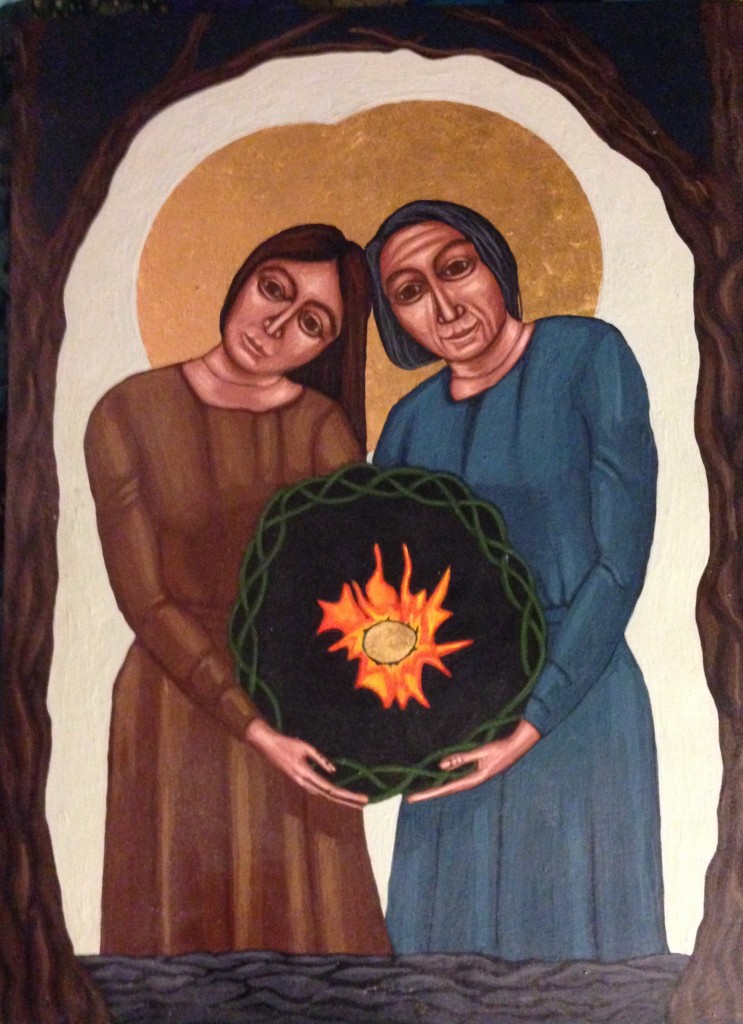Every day for Morning and Evening Prayer, there it is, the Magnificat, Mary’s canticle revealing the Annunciation (Lk. 1: 46-55). Sometimes I use the 1928 version from Rite I, just for the beauty of the language. Sometimes I chant it in plainsong. Sometimes I just go along with Rite II. I even know the Latin. Bach’s Magnificat in D is one of my favorite pieces of music, and one which I have sung.
One phrase has always jumped out at me. “He hath scattered the proud in the imagination of their hearts.” The Rite II translation says, “He has scattered the proud in their conceit.” While “conceit” can mean self-importance, it can also mean just an exaggerated comparison. “Imagination of their hearts” is probably clearer in pointing to narcissism, self-approbation, a false regard for self. This canticle also says “He hath put down the mighty from their seat and hath exalted the humble and meek” (traditional), echoing Psalm 147:6. The hungry are fed, the rich are sent away empty. “He had mercy on those who fear him.” We are so afraid of the fear of God. God is love, we say. Nothing to fear here. Yes, unimaginable love, but also power and majesty beyond comprehension. To borrow a phrase, shock and awe. That kind of fear. Down to the bone humility. To look in the face of the Living God is too much for us, and it doesn’t hurt to both remember that and to give thanks for the Incarnation which grew in Mary’s womb.
We are called to humility over and over again. Jesus tells us that the first shall be last and the last first (Mt. 20:16). The bridegroom will call the lowly to the feast (Mt. 22: 1-14). It seems upside-down. And Paul makes no bones about it. Be a slave to Christ (1 Cor. 7:22-23). We hate that word “slave” because in the United States it has connotations of racism. Let us, for a moment, think as if we lived in the first century. In Late Antiquity a lot of people ended up belonging to other people, and there were laws so that they might save their tips (and they got them and banked them) and buy their freedom. Freedmen/women who were now Roman citizens had legal rights. But Paul says “Go the other way.” Disenfranchise ourselves? What about being protected by Roman law? What about the benefits of status? Paul says be willing to give it all up. Be the humble and meek. This is as counterintuitive in our world as it was in his.
But who buys our freedom? Not tips, not Roman law. The Body and Blood of Christ and God’s law, that is what makes us free. A slave for a little while, and a son or daughter forever (Gal. 4:7). It is our God who exalts us, not our conceit. Our unhearing pride scatters us, in humility we listen to God.
To yield in faith to the will of the Father as Jesus did, to the Spirit as Mary did, takes courage. Sometimes it hurts. Sometimes in humiliation. Sometimes worse. So I pray. I struggle. I magnify the Lord. And I implore that the Holy Spirit guide me, as She guided a teenage Palestinian girl. And Paul. And the Apostles. And each of us. And through this humility comes the peace which passes all understanding as our safety and courage and labor in God’s vineyard and all things come as gifts from our Loving God.
Dr. Dana Kramer-Rolls is a parishioner at All Souls Parish, Episcopal, Berkeley, California and earned her master’s degree and PhD from the Graduate Theological Union, Berkeley, California.
Image: Icon of Mary and Elizabeth by Laurie Gudim. Everyday Mysteries

